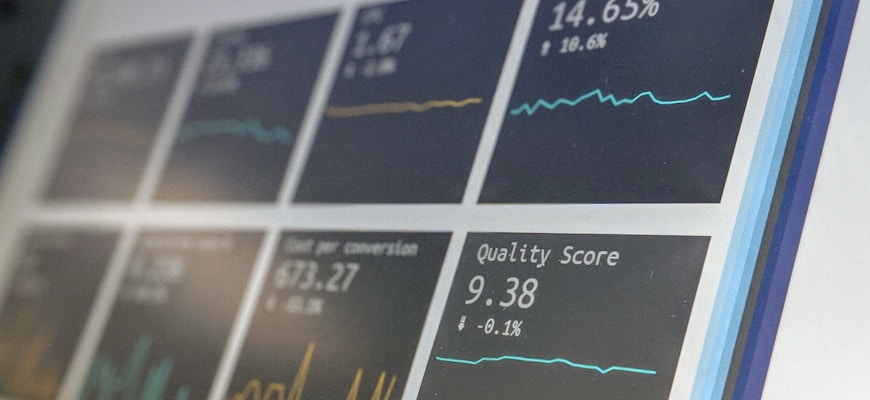How Data Privacy Laws Are Evolving Worldwide

- The Impact of GDPR on Global Data Privacy Regulations
- Key Features of Data Privacy Laws in the United States
- Emerging Trends in Data Protection Legislation in Asia
- Challenges Faced by Companies in Compliance with Data Privacy Laws
- Comparing Data Privacy Regulations in Europe and North America
- The Role of Technology in Shaping Data Privacy Laws
The Impact of GDPR on Global Data Privacy Regulations
The impact of the General Data Protection Regulation (GDPR) on global data privacy regulations has been significant. The GDPR, which came into effect in May 2018, has set a new standard for data protection laws around the world. Many countries have updated their existing data privacy regulations to align with the principles outlined in the GDPR.
One of the key impacts of the GDPR is the emphasis it places on transparency and accountability when handling personal data. Organizations are now required to be more transparent about how they collect, use, and store data, and they must be able to demonstrate compliance with the regulations.
Another important aspect of the GDPR is the rights it gives to individuals over their personal data. Under the GDPR, individuals have the right to access their data, correct inaccuracies, and even have their data erased in certain circumstances. This shift towards giving individuals more control over their data is a significant development in data privacy regulations.
The GDPR has also introduced stricter requirements for obtaining consent to collect and use personal data. Organizations must now obtain explicit consent from individuals before processing their data, and they must make it easy for individuals to withdraw their consent at any time.
Overall, the GDPR has had a ripple effect on data privacy regulations worldwide. Many countries have recognized the need to update their laws to meet the new standards set by the GDPR. This move towards stronger data protection measures is a positive step towards ensuring the privacy and security of personal data in an increasingly digital world.
Key Features of Data Privacy Laws in the United States
Data privacy laws in the United States are constantly evolving to keep up with the advancements in technology and the increasing concerns about the protection of personal information. There are several key features of data privacy laws in the United States that individuals and organizations should be aware of to ensure compliance and safeguard sensitive data.
One important aspect of data privacy laws in the United States is the concept of consent. Under these laws, individuals must give their explicit consent for their personal data to be collected, processed, and shared. This means that organizations must be transparent about how they intend to use personal data and obtain permission from individuals before doing so.
Another key feature of data privacy laws in the United States is the requirement for data breach notifications. In the event of a data breach that exposes personal information, organizations are required to notify affected individuals in a timely manner. This helps individuals take steps to protect themselves from potential identity theft or other forms of fraud.
Data privacy laws in the United States also include provisions for the protection of sensitive information, such as health records and financial data. Organizations that handle this type of information are required to implement security measures to prevent unauthorized access and ensure the confidentiality of the data.
Overall, data privacy laws in the United States are designed to strike a balance between protecting individuals’ privacy rights and allowing for the legitimate use of personal data by organizations. By understanding and complying with these laws, both individuals and organizations can contribute to a more secure and privacy-conscious digital environment.
Emerging Trends in Data Protection Legislation in Asia
With the rapid advancement of technology, data protection legislation in Asia is constantly evolving to keep up with the changing landscape of data privacy. Various countries in Asia are enacting new laws and regulations to enhance the protection of personal data and ensure the privacy rights of individuals are upheld.
One emerging trend in data protection legislation in Asia is the implementation of stricter requirements for data processing and storage. Many countries are introducing laws that mandate organizations to obtain explicit consent from individuals before collecting and using their personal data. Additionally, there is a growing emphasis on data localization, requiring companies to store data within the country’s borders to prevent unauthorized access and data breaches.
Another trend is the establishment of data protection authorities in Asian countries to enforce compliance with data protection laws and investigate data breaches. These authorities play a crucial role in monitoring and regulating the handling of personal data by organizations, ensuring that they adhere to the stipulated guidelines and protocols.
Furthermore, there is a noticeable shift towards harmonization of data protection laws in Asia to facilitate cross-border data transfers and promote international cooperation on data privacy issues. By aligning their data protection frameworks with global standards, countries in Asia aim to enhance data security and foster trust in the digital economy.
Overall, the evolving trends in data protection legislation in Asia reflect a growing awareness of the importance of data privacy and the need to adapt to the challenges posed by the digital age. As technology continues to advance, it is essential for countries in Asia to stay abreast of the latest developments in data protection and enact regulations that safeguard the rights and interests of individuals in an increasingly data-driven world.
Challenges Faced by Companies in Compliance with Data Privacy Laws
Companies around the world are facing numerous challenges when it comes to complying with data privacy laws. These laws are constantly evolving and becoming more stringent, requiring organizations to stay up-to-date and adapt their practices accordingly.
One of the main challenges companies face is the complexity of these laws. With different regulations in various countries and regions, it can be difficult for companies to navigate and ensure they are in full compliance. This complexity is further compounded by the fact that many of these laws are open to interpretation, making it challenging for companies to determine the best course of action.
Another challenge is the cost associated with compliance. Implementing the necessary measures to protect data privacy can be expensive, especially for smaller companies with limited resources. This includes investing in technology, hiring experts, and training staff to ensure compliance with the laws.
Furthermore, the risk of non-compliance poses a significant threat to companies. Data breaches and violations of data privacy laws can result in hefty fines, legal action, and damage to the company’s reputation. This risk adds pressure on organizations to prioritize data privacy and take the necessary steps to avoid any potential consequences.
In conclusion, the evolving nature of data privacy laws presents a significant challenge for companies worldwide. To navigate these challenges successfully, organizations must stay informed, allocate resources effectively, and prioritize data privacy in their operations.
Comparing Data Privacy Regulations in Europe and North America
When comparing data privacy regulations in Europe and North America, it is evident that there are significant differences in how each region approaches the protection of personal information. In Europe, the General Data Protection Regulation (GDPR) sets a high standard for data privacy by requiring organizations to obtain explicit consent from individuals before collecting their data. This regulation also gives individuals the right to access, correct, and delete their personal information.
On the other hand, North America, particularly the United States, has a more fragmented approach to data privacy regulation. While there are federal laws in place, such as the Health Insurance Portability and Accountability Act (HIPAA) and the Children’s Online Privacy Protection Act (COPPA), there is no comprehensive federal data privacy law. Instead, data privacy regulations in the U.S. are primarily governed by a patchwork of state laws.
Despite these differences, both Europe and North America are moving towards stricter data privacy regulations in response to growing concerns about data breaches and misuse of personal information. Companies operating in both regions must navigate these complex regulatory landscapes to ensure compliance and protect the privacy of their customers.
Overall, while Europe has taken a more unified and stringent approach to data privacy regulation with the GDPR, North America is also beginning to strengthen its data privacy laws to better safeguard personal information. As data continues to play a central role in the digital economy, it is crucial for organizations on both sides of the Atlantic to stay informed about evolving data privacy regulations and adapt their practices accordingly.
The Role of Technology in Shaping Data Privacy Laws
Technology plays a crucial role in shaping data privacy laws around the world. As advancements in technology continue to evolve at a rapid pace, lawmakers are faced with the challenge of keeping up with these changes to ensure that individuals’ data is protected. The use of technology not only raises concerns about data privacy but also presents new opportunities to enhance the security of personal information.
With the increasing use of social media platforms, online services, and smart devices, there is a growing need for regulations that govern how companies collect, store, and use data. Technology has made it easier for businesses to gather vast amounts of data about individuals, leading to concerns about data breaches, identity theft, and unauthorized access to personal information.
As a result, many countries are updating their data privacy laws to address these challenges. The European Union’s General Data Protection Regulation (GDPR), for example, sets strict guidelines for how companies must handle personal data. The GDPR requires businesses to obtain explicit consent from individuals before collecting their data and gives individuals the right to access, correct, and delete their information.



